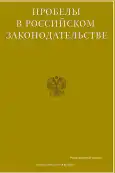Countering the Spread of Extremism and Terrorism Ideology in Prisons
- Authors: Ordokov M.K.1, Kazachenko A.A.2
-
Affiliations:
- North Caucasus Institute for Advanced Studies (branch) of the Krasnodar University of the Ministry of Internal Affairs of Russia
- Nizhny Novgorod Academy of the Ministry of Internal Affairs of Russia
- Issue: Vol 15, No 5 (2022)
- Pages: 115-119
- Section: Articles
- URL: https://journal-vniispk.ru/2072-3164/article/view/147601
- ID: 147601
Cite item
Abstract
Full Text
##article.viewOnOriginalSite##About the authors
Mirzabek Khautievich Ordokov
North Caucasus Institute for Advanced Studies (branch) of the Krasnodar University of the Ministry of Internal Affairs of Russia
Email: amir8301@mail.ru
police lieutenant colonel, Senior Lecturer, Department of Fire Training Nalchik, Russia
Alexander Alexandrovich Kazachenko
Nizhny Novgorod Academy of the Ministry of Internal Affairs of Russiapolice lieutenant colonel, Senior Lecturer, Department of Fire Training Nizhny Novgorod, Russia
References
- Federal Law No. 27.12.2018 No. 569-FZ "On Amendments to Articles 58 and 72 of the Criminal Code of the Russian Federation" [Electronic resource] // Access mode: http://www.consultant.ru/document/cons_doc_LAW_314699/ (accessed 29.04.2022).
- Order of the Ministry of Justice of the Russian Federation dated November 2, 2018 No. 229 “On amendments to the instructions for the prevention of offenses among persons held in institutions of the penitentiary system, approved by order of the Ministry of Justice of Russia dated May 20, 2013 No. 72” [Electronic resource] // Access mode: https://minjust.consultant.ru/documents/40964 (accessed 04/29/2022).
- Agapov P.V., Sotchenko S.D. Counteraction to the spread of extremist ideology in the institutions of the penitentiary system // Legitimacy. 2016. No. 8. S. 45-51.
- Averinskaya S.A., Perevalova T.F., Zagainov V.V. On countering extremist activity in correctional institutions of the Federal Penitentiary Service of Russia in relation to persons serving a criminal sentence related to deprivation of liberty // Law and Law. 2020. No. 6. S. 87-90.
- Brovkina A.A. Prevention of radicalization of persons serving sentences in the form of deprivation of liberty // Epomen. 2021. No. 59. S. 171-182.
- Galakhov S.S. Some problems of countering crimes of a terrorist nature and general information about the state, dynamics and structure of persons serving sentences for their commission // Penitentiary system and society: interaction experience: Sat. Materials IV Intern. scientific-practical. conf. / comp. V. A. Tarasov. Perm: Perm Institute of the Federal Penitentiary Service of Russia, 2017, pp. 7-13.
- Kazantsev S.A. Extremism. Methods of informational counteraction to the spread of extremism. Identification of persons held in penitentiary institutions who are prone to committing extremist and terrorist crimes // In the collection: Petersburg Penitentiary Conferences. Materials of conferences. In 4 volumes. St. Petersburg, 2021, pp. 143-159.
- Rudich V.V., Zhilko I.A. Counteraction to the spread of extremist and terrorist ideology in places of deprivation of liberty // Criminal Executive Law. 2021. V. 16. No. 4. S. 455-460.
- Serebrennikova A. V., Lebedev M. V. Features of the execution of punishment in relation to persons who have committed crimes of a terrorist orientation // Penitentiary system: law, economics, management. 2020. No. 3. S. 26-29.
- Fomin I.S., Tikhomirov A.I. On the issue of information and propaganda activities in the field of countering the ideology of extremism and terrorism in the institutions of the penal system of the Russian Federation // In the collection: Penitentiary system: pedagogy, psychology and law. Materials of the All-Russian scientific-practical conference. Tomsk, 2020. S. 205-211.
Supplementary files








